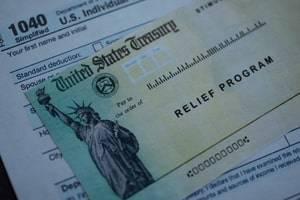 312-704-0771
312-704-0771
Which Types of Federal and State Benefits Are Creditors Not Allowed to Garnish?
 When all other attempts to collect a debt have been unsuccessful, a creditor may be left with only more drastic measures, such as wage garnishment. You cannot garnish a debtor’s wages until after you have filed a lawsuit against the debtor and the court has found in your favor. With wage garnishment, you can order the debtor’s employer to divert a portion of their paycheck to you in order to repay their debt. You can also freeze the debtor’s bank account in order to garnish money without the debtor being able to withdraw it. However, there are some sources of income that you cannot collect from. For instance, many federal and state benefits are exempt from garnishment.
When all other attempts to collect a debt have been unsuccessful, a creditor may be left with only more drastic measures, such as wage garnishment. You cannot garnish a debtor’s wages until after you have filed a lawsuit against the debtor and the court has found in your favor. With wage garnishment, you can order the debtor’s employer to divert a portion of their paycheck to you in order to repay their debt. You can also freeze the debtor’s bank account in order to garnish money without the debtor being able to withdraw it. However, there are some sources of income that you cannot collect from. For instance, many federal and state benefits are exempt from garnishment.
Which Benefits Are Exempt?
Federal and state laws protect individuals’ benefits from both garnishment and deduction. In Illinois, exempt benefits include:
- Unemployment compensation and benefits
- Social Security and Social Security Insurance
- Public assistance
- Disability benefits
- Retirement benefits and pensions
- Veteran’s benefits
- Child support and spousal maintenance
- Awards from personal injury lawsuits
Garnishment is allowed on protected benefits when it applies to certain debts, such as unpaid child support, federal student loans, and income taxes.
How Might the Exemptions Affect Debt Collection Efforts?
Just because a debtor is receiving legally protected benefits does not mean there are no other sources of money that you can garnish. However, the garnishment can become more complicated if the protected benefits are mixed in with the rest of the debtor’s money. For instance, the debtor may deposit the benefits payments into the same bank account where they keep their savings. You are allowed to garnish money in the account that the debtor accumulated from sources other than the protected benefits, but the bank may be forced to unfreeze the account if it contains exempted benefits.
Rather than being concerned about garnishing money that is exempt, you can proceed with the garnishment as normal and let the debtor file a motion to protect their benefits in response. The debtor has the burden of proving that they are receiving exempt benefits and how much of those benefits are in the bank account. If the court determines that a portion of the bank account funds are exempt, it will tell you how much of the account you are allowed to garnish.
Contact a Chicago Debt Collection Attorney
An increasing number of Americans are filing for unemployment benefits, which creditors will have to take into consideration. An Illinois creditor’s rights lawyer at Dimand Walinski Law Offices, P.C., can advise you on your options for collecting the debts. To schedule a consultation, call 312-704-0771.
Source:
https://www.consumer.ftc.gov/articles/0114-garnishing-federal-benefits






